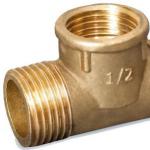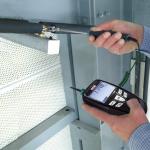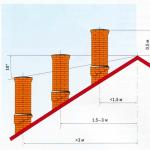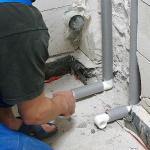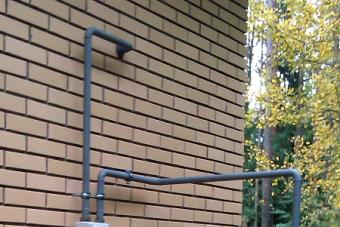The gas pipeline is designed to transport a combustible mixture that belongs to the category of hazardous substances. These circumstances require special materials and conditions for laying networks that exclude any leakage. Steel pipes for gas pipelines have been used from the beginning of widespread gasification to the present day. And although their plastic counterparts have appeared on the modern market, they have not been able to replace traditional products, despite the fact that they have a number of advantages.
What are steel pipes and gas pipelines
For gas pipeline networks, different types of pipes are produced. They can be divided into two main groups:- seamless;
- welded.
The first group consists of hot- and cold-formed, and the products of the second group differ in the type of seam - straight or spiral. In the manufacture of pipes, different grades of carbon steel are used, specified in GOST 380-2005. The use of a particular chemical composition of steel, the type and size of gas pipes depends on several factors:
- pressure in the system - high, medium, low;
- pipeline location - above ground, underground, under water, in a building;
- purpose of the network - backbone, distribution, backup.
Main gas pipelines are divided into two categories. They transport an explosive mixture under pressure up to 10 MPa over long distances. In this case, steel pipes of large diameters are used, to which the highest requirements are imposed.

Distribution networks deliver gas directly to the points of analysis, that is, to the consumer. Such pipelines have a smaller diameter and thinner walls. There are various nuances here. For example, a gas pipe can be laid in apartments - steel or plastic in the form of a flexible hose.
Regarding the reserve network, we can say that it is intended for special purposes - strategic ones. Increased requirements are imposed on it, since in certain situations it may not be used.
Gas pipes must have a certificate and related documents indicating the manufacturer and information about the tests performed, the method of production and steel grade, the mark of conformity and the GOST number.
Standards for assortment
GOST 3262-75
This standard relates to the production of water and gas pipes intended for the installation of distribution systems supplying natural gas under high pressure (up to 1.6 MPa). The conditional diameter of products is up to 150 mm, length - from 4 to 12 meters.
GOST 8734-75
The regulatory document indicates the range of seamless pipes manufactured by cold forming. They withstand pressure up to 10 MPa. The maximum outside diameter is 250mm. Measured length varies from 4.5 to 9 meters.
GOST 8732-78
It also determines the assortment of seamless pipes, but not cold, but hot-formed. Their outer diameter is large - up to 530-550mm with a wall thickness of up to 75mm. Products are supplied in lengths of 4-12.5 meters. Pipes are allowed to be installed on high pressure main gas pipelines.
GOST 10704-91
The standard specifies the assortment of electric-welded longitudinal pipes. Their outer diameter can reach 1420mm. The length of manufactured products depends on their diameter. It varies from 2 to 12 meters.

Advantages and disadvantages of steel gas pipes
The positive characteristics of the products include:
- sufficient strength;
- slight linear expansion;
- ability to withstand high pressure;
- 100% tightness with proper docking and no defects.
Negative sides:
- the possibility of condensation due to high thermal conductivity;
- high probability of occurrence of corrosion processes;
- lack of flexibility;
- labor-intensive installation using welding.
Installation requirements
The laying of gas pipeline networks provides for compliance with certain rules:
- design regulations must be strictly observed;
- connections must be made with high quality in order to prevent gas leaks during operation;
- pipes should be mounted in such a way that they fit snugly to the base;
- the safety of the factory anti-corrosion insulation is an important technological point, which determines the immunity of steel walls to the effects of stray currents, as well as the absence of rusting processes;
- welded seams are subject to mandatory treatment with bitumen-based compounds.
Insulation of gas pipes intended for laying in the ground is carried out at the factory. Its high-quality implementation at the construction site is impossible due to the technological features of the process. Depending on the soil conditions, the protective coating can be ordinary and reinforced.
